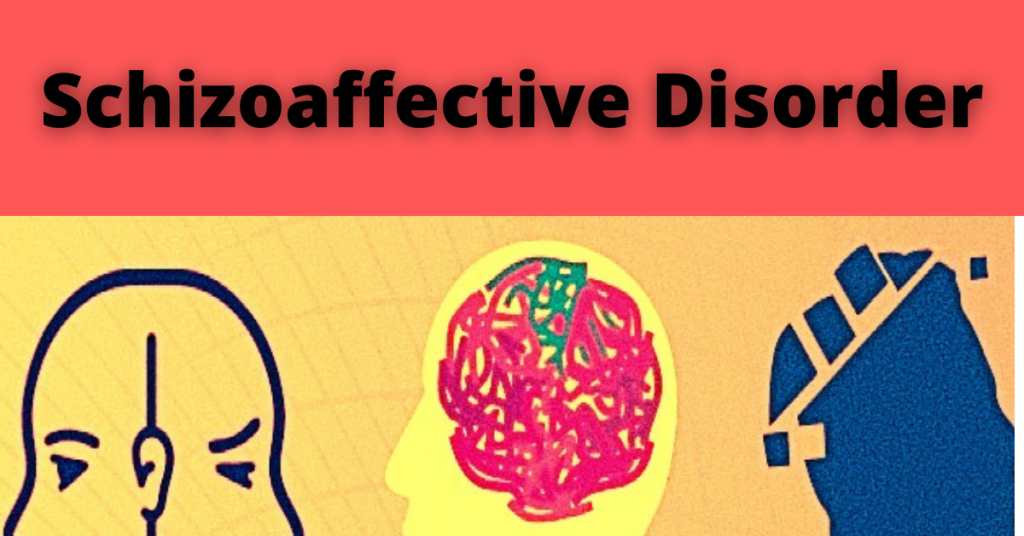Schizophrenia is a mental disorder that can cause a wide range of symptoms. These symptoms can be very disruptive and make it difficult for people to function. If you think that you or someone else might have schizophrenia, it is important to learn more about the symptoms. This way, you can get help. In this article, we will discuss the most common symptoms of schizophrenia.
What Is Schizophrenia?
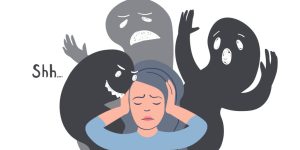
Schizophrenia is a mental disorder that affects how a person thinks, feels, and behaves. It can result in hallucinations, delusions, and abnormal thinking and behavior. Schizophrenia may also cause problems with concentration, memory, and socializing. Symptoms of schizophrenia usually start to appear in early adulthood.
There are three primary types of schizophrenia:
- Paranoid schizophrenia is the most common type. It features delusions and hallucinations that are focused on persecution or conspiracy.
- Catatonic schizophrenia is characterized by unusual movements and a lack of interest in activities.
- Disorganized schizophrenia is marked by disjointed speech, behavior, and thinking.
The cause of schizophrenia is unknown, but it is believed to be caused by a combination of genetic and environmental factors. Schizophrenia may also occur when the brain doesn’t develop properly during fetal development.
- Genetics: Schizophrenia is a complex mental disorder that appears to be caused by both environmental and genetic factors. People with a family history of schizophrenia are more likely to develop the disease than people without a family history. However, just because someone has a family member with schizophrenia doesn’t mean they will definitely develop the disorder.
- Environment: The environment may also play a role in developing schizophrenia. stressful life events or being exposed to certain viruses may increase the risk of developing the disorder.
- Brain Development: It’s believed that schizophrenia may occur when the brain doesn’t develop properly during fetal development. This could be due to genetics or environmental factors, such as exposure to toxins or stress hormones.
Schizophrenia Symptoms
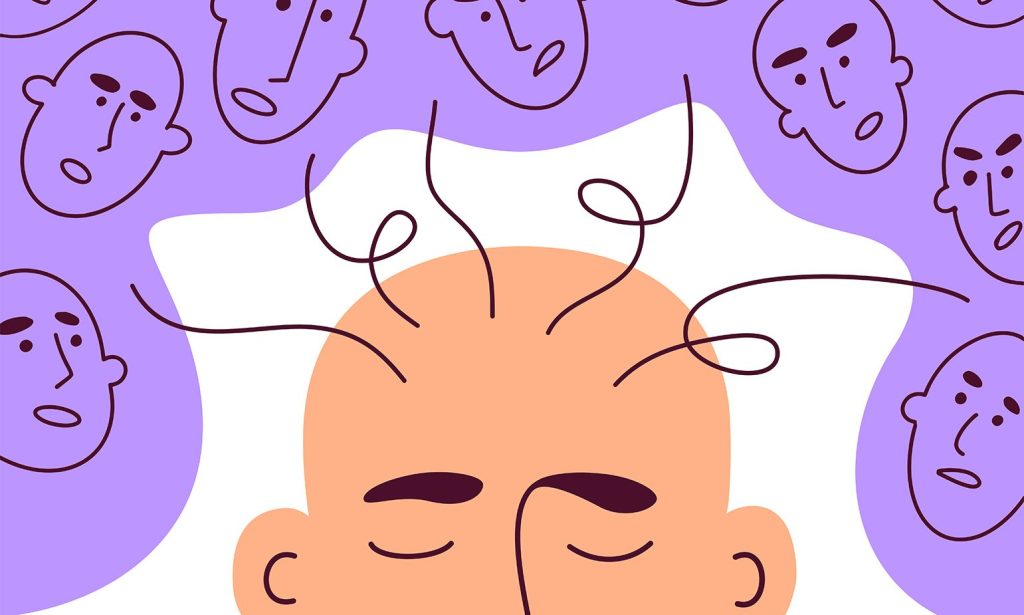
- Hallucinations are perceptions that occur in the absence of an external stimulus. They can be auditory, visual, olfactory, gustatory, or somatic.
- Delusions are fixed false beliefs that a person holds despite evidence to the contrary.
- Thought disorder is a disturbance in the way a person thinks. It may manifest as disorganized thinking, loosening of associations (meaning thoughts don’t follow a logical pattern), or derailment (the train of thought jumps from one topic to another with no connection).
- Affective flattening is a decrease in emotional expression. This may manifest as decreased facial expressions, monotone speech, and lack of responsiveness to others.
- Social withdrawal is when a person becomes less interested in socializing and withdrawing from friends and family.
- Poor concentration or attention span is when a person has difficulty focusing on tasks and retaining information.
- Memory problems are difficulties with recalling past memories, learning new information, or organizing thoughts.
Moreover, negative symptoms are deficits in normal behavior. These may include apathy, blunted affect (emotional flatness), reduced motivation, and social withdrawal.
If you or someone you know is experiencing any of these symptoms, it’s important to seek help from a mental health professional. There is no one-size-fits-all treatment for schizophrenia, but there are a number of effective therapies that can help manage the condition. With proper treatment, many people with schizophrenia lead successful lives.
Negative Impact Of Schizophrenia Symptoms
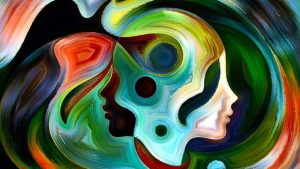
- Some people have schizophrenia. Symptoms can make life hard, like not being able to work or do good in school. It can also make relationships hard with family and friends.
- People with schizophrenia have a hard time concentrating. That makes it difficult for them to finish jobs, do well in school, and hold down a job.
- People may have a hard time with relationships because of the illness. They may have trouble talking or acting.
- Additionally, schizophrenic symptoms can be extremely distressing and lead to feelings of isolation, hopelessness, and despair.
How To Deal With Schizophrenia Symptoms?
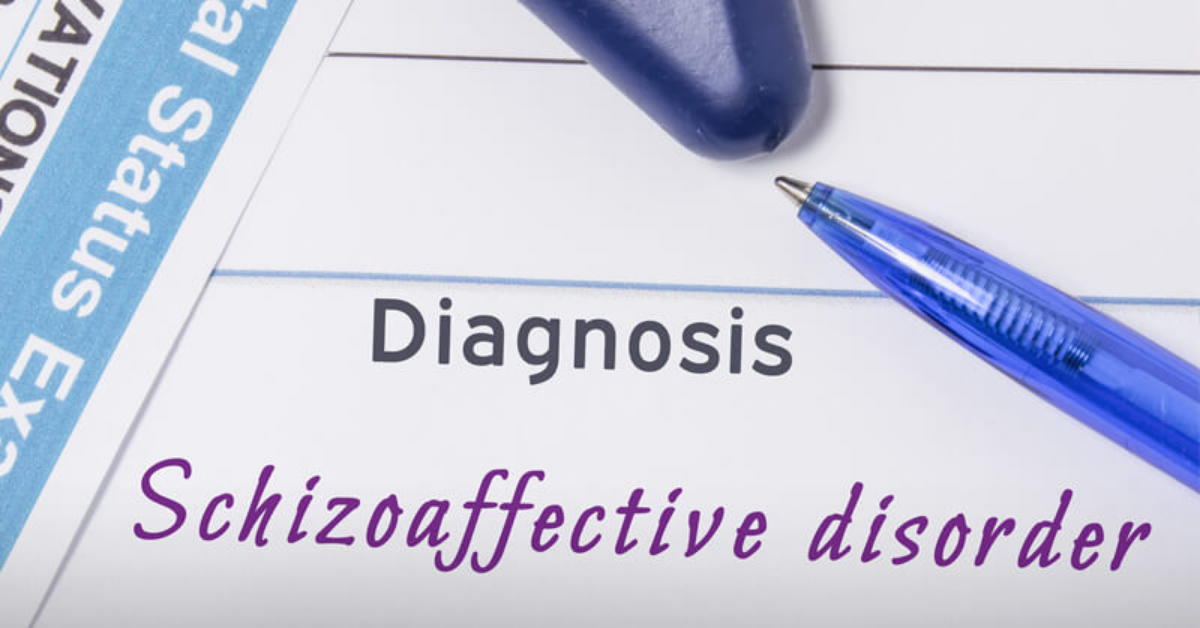
If you are living with a loved one who is struggling with schizophrenia, it can be difficult to know how to best support them. There are many ways that you can help your loved ones manage their symptoms and live a full and productive life. You can do this by keeping track of how someone is feeling, giving them emotional support, and connecting them with helpful resources.
Here are some tips for dealing with schizophrenia symptoms:
- Encourage your loved one to stay connected to friends and family members. Social support is very important for people with schizophrenia.
- Help your loved one develop healthy coping mechanisms, such as relaxation techniques or journaling.
- Make sure that your loved one takes their medication as prescribed and attends all of their appointments with their doctor.
- Be patient and understanding. Schizophrenia can be a very difficult condition to live with.
- Offer your support and understanding, and be there for your loved ones when they need you. You can make a big difference in their life.
Therapies To Deal With Schizophrenia Symptoms

There are many different therapies that can be used to help people with schizophrenia manage their symptoms. Some of the most common therapies include:
- Cognitive Behavioral Therapy (CBT): CBT is a type of therapy that helps people change the way they think about and behave towards themselves and others. It can be helpful for managing negative thoughts and feelings.
- Family-Based Treatment (FBT): FBT is a type of therapy that involves family members in the treatment process. It helps families learn how to best support their loved ones, as well as how to cope with the challenges associated with schizophrenia.
- Psychotherapy: Psychotherapy is a type of therapy that focuses on the emotional aspects of mental health conditions. It can be helpful for managing the feelings of guilt, shame, and isolation that often accompany schizophrenia.
- Medication: There are many different types of medication that can be used to treat schizophrenia. Your doctor will work with you to find the best medication for your individual needs.
Moreover, there is no one-size-fits-all approach to managing schizophrenia symptoms. You need to work with your doctor to find the things that work best for you or your loved one. Also, with the right treatment and support, people with schizophrenia can lead full and productive lives.
Benefits Of Taking The Treatment
There are many benefits of taking the treatment for schizophrenia. Some of the most notable benefits include:
- Reduced symptoms: The medication can help reduce the symptoms of schizophrenia, making it easier for people to live with the condition.
- Improved quality of life: People who take the medication often have a better quality of life than those who do not.
- Better functioning: People who take the medication tend to function better in social and work settings.
- Less severe relapses: If you take your medication as prescribed, you are less likely to experience severe relapses.
Finally, schizophrenia is a serious mental health condition that can be difficult to manage. With the right treatment and support, however, people with schizophrenia can lead full and productive lives. If you are struggling with schizophrenia symptoms, please talk to your doctor about the best treatment options for you.
Helping Someone With Schizophrenia Symptoms

If you have a loved one who has schizophrenia, it’s important to know what to look for and how best to help them. Schizophrenia symptoms can be very disruptive and frightening for both the person with the disorder and those around them. Many people living with schizophrenia are able to manage their symptoms and live fulfilling lives with the help of support and treatment.
Conclusion
Schizophrenia is a mental illness that affects how a person thinks, feels, and behaves. Also, it can be very disabling. Schizophrenia may result in hallucinations, delusions, and disorganized thinking. In severe cases, it can lead to social withdrawal, unemployment, and homelessness. Also, schizophrenia can occur due to a combination of genetic and environmental factors. There is no single cause for schizophrenia.
There are three main types of symptoms with schizophrenia: positive symptoms (hallucinations, delusions), negative symptoms (social withdrawal, apathy), and cognitive symptoms (problems with attention, memory). Most people who have schizophrenia require lifelong treatment with medication and some also need therapy or support services. Also, treatment usually helps reduce the severity of symptoms and improve quality of life. If you or someone you know is struggling with schizophrenia, please seek help from a doctor or mental health professional.
A Word From Therapy Mantra
Your mental health — Your psychological, emotional, and social well-being — has an impact on every aspect of your life. Positive mental health essentially allows you to effectively deal with life’s everyday challenges.
At TherapyMantra, we have a team of therapists who provide affordable online therapy to assist you with issues such as depression, anxiety, stress, workplace Issues, addiction, relationship, OCD, LGBTQ, and PTSD. You can book a free therapy or download our free Android or iOS app.
